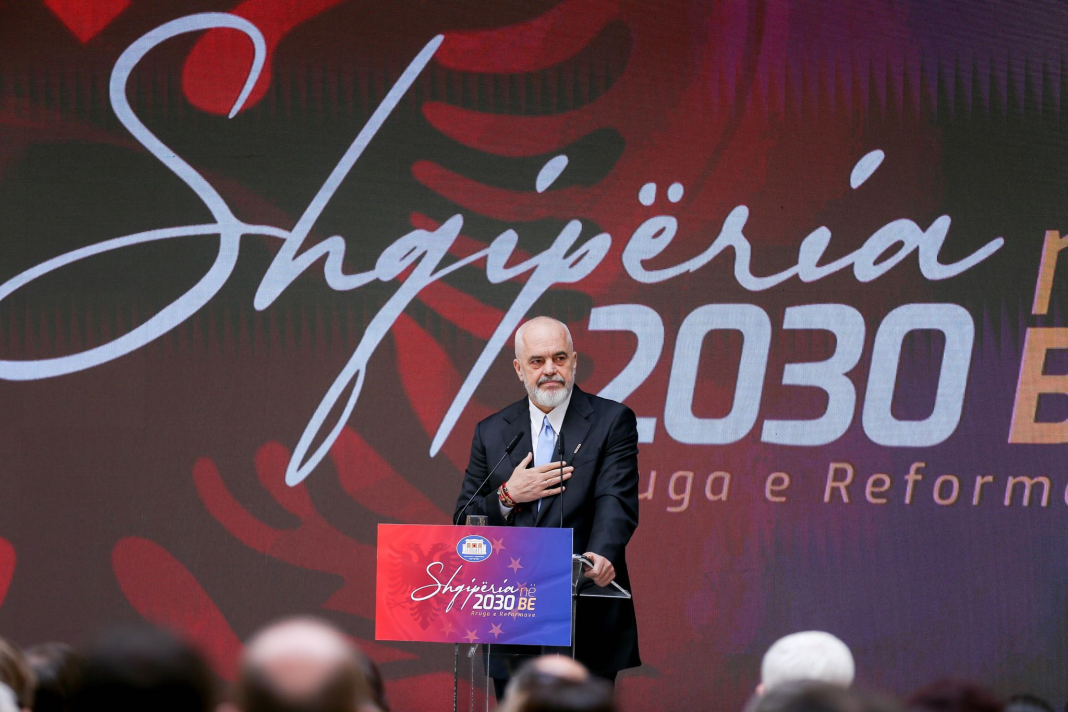Esmeralda Topi
In April 2023, one month before the local elections, the minimum wage in Albania was increased from 34,000 LEK to 40,000 LEK. At the time, Prime Minister Edi Rama promised that this would not be the final increase. According to him, the minimum wage would go up by an additional 5,000 LEK in the spring of this year.
‘By the end of April 2025, the minimum wage will be 45,000 LEK…’ Prime Minister Edi Rama promised in March 2023.
Fact
Two years after the promise, the minimum wage in Albania still stands at 40,000 Lek. The increase did not happen as promised. However, it was brought up again on the eve of the parliamentary elections, with one twist—this time, the Prime Minister has committed to raising the minimum wage to 500 euros.

During the presentation of the Socialist Party’s program ‘Albania 2030’ for the May 11 elections, the leader of the Socialist Party, Rama, stated:
‘From January 2026 (…) the minimum wage will be 500 euros’, he promised, without providing any explanation for the unfulfilled promise made two years ago.
‘To support employees who will benefit from this rapid increase in the minimum wage, employers will be required to raise the minimum wage, but we will offer a relief by ensuring that, for 18 months after the first payment, the state will not impose any tax obligations on the additional 100 euros’, Rama added.
The latest data from INSTAT shows that, out of the total number of employees who pay social security contributions, 24.5% of them earn a minimum wage of 40,000 LEK.
Political Decision
Eduart Gjokutaj, an economist and fiscal analyst at the Albanian Tax-Economic Center – ALTAX, argues that the minimum wage in Albania is a political decision that does not reflect the actual economic conditions.
‘When minimum wage policies, and economic policies in general, do not align with the market reality, they lead to implementation problems and fail to address the real needs of the people’, he explains to Faktoje.al.
On the other hand, Alban Zusi, director of the Albanian Exporters Center, explains that export businesses have raised the minimum wage due to the challenging operational environment.
‘What should happen is for the government to remove TAP (personal income tax) on this wage. Even though we raise the minimum wage, workers receive less because of the taxes imposed by the state’, Zusi suggests.
Last in the Region and Europe
Although the minimum wage has increased six times over the past decade, Albania still ranks last in the region in terms of the level of the wage.
Montenegro holds the top spot with 670 euros, followed by Serbia with 618 euros and North Macedonia with 540 euros. In Bosnia and Herzegovina, the minimum wage is 510 euros per month.
Moreover, Albania ranks last in Europe in terms of minimum wage when adjusted for purchasing power.
Data from Eurostat show that prices in Albania are among the highest in the region. Many products are also more expensive than in other European countries, but the purchasing power remains low, placing Albania at the bottom of the list.

Conclusion
Based on the verification conducted, the promise made by Prime Minister Edi Rama that the minimum wage will reach 45,000 LEK by the end of April 2025 will be categorized as unfulfilled.










